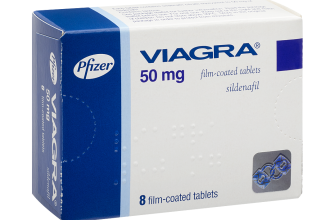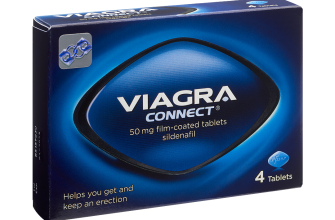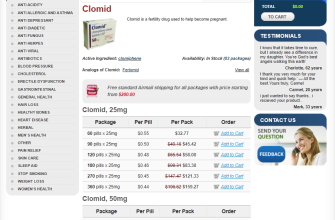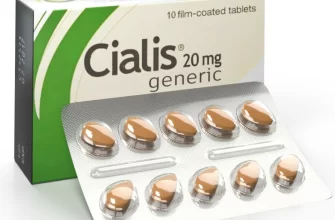If you notice uneven skin tone or blotchy pigmentation, consider incorporating a daily skincare routine that includes products with ingredients like Vitamin C and retinoids. These components can help to even out skin tone and promote cell turnover. Regular application of broad-spectrum sunscreen protects against UV rays, which can exacerbate pigmentation issues.
Acknowledge that diet also plays a significant role in skin appearance. Consume foods rich in antioxidants, such as berries, nuts, and green leafy vegetables. Staying hydrated helps maintain skin elasticity and reduces the appearance of blotches.
For those seeking professional assistance, options like chemical peels and laser therapy offer targeted solutions for stubborn pigmentation. Consult a dermatologist to assess your skin type and determine the most suitable treatment plan tailored to your needs.
Establishing a consistent skincare routine, maintaining a nutrient-rich diet, and seeking professional advice will greatly improve your skin’s texture and tone, allowing you to regain confidence in your complexion.
- Understanding Blotchy Skin Pigmentation
- Home Remedies and Lifestyle Adjustments
- Professional Treatments
- Identifying Common Causes of Blotchy Skin Pigmentation
- Effective Home Remedies for Blotchy Skin
- Skin Care Products to Consider for Blotchy Skin
- When to Consult a Dermatologist for Pigmentation Issues
- Signs Indicating a Dermatologist Visit
- What to Expect During Your Consultation
- Preventive Measures to Avoid Blotchy Skin Pigmentation
- Avoid Harsh Products
- Maintain a Balanced Diet
Understanding Blotchy Skin Pigmentation
Identify the triggers of blotchy skin pigmentation for effective management. Common causes include sun exposure, hormonal changes, and certain medications. Applying a broad-spectrum sunscreen daily minimizes sun-induced pigmentation. Explore options like topical treatments containing hydroquinone or retinoids, which can lighten dark patches. Consulting a dermatologist will help you find a personalized treatment plan tailored to your specific needs.
Home Remedies and Lifestyle Adjustments
Incorporate gentle exfoliation into your skincare routine. Natural scrubs with ingredients like sugar or oatmeal can help remove dead skin cells and improve skin texture. Staying hydrated supports healthy skin function and may reduce pigmentation issues. Including antioxidants like vitamin C in your diet can promote an even skin tone. Avoiding harsh chemicals in skincare products and opting for those labeled ‘non-comedogenic’ and ‘hypoallergenic’ can prevent further irritation.
Professional Treatments
Explore professional treatments such as chemical peels, laser therapy, or microdermabrasion for more persistent pigmentation. These procedures target deeper skin layers and can enhance overall skin appearance. Always seek advice from certified practitioners to ensure safe and appropriate treatment. Regular follow-ups can track progress and make necessary adjustments to your regimen.
Identifying Common Causes of Blotchy Skin Pigmentation
Begin by evaluating sun exposure. Excessive UV radiation can lead to hyperpigmentation, causing uneven skin tone. Always apply sunscreen to protect your skin and reduce the risk of blotchy patches.
Hormonal changes present another frequent cause. Conditions such as pregnancy, menopause, or hormonal therapies can trigger melasma, characterized by dark patches, especially on the face. Consult a healthcare provider for tailored treatment options.
Medications can also influence skin pigmentation. Certain drugs, such as antibiotics or chemotherapy agents, may result in discoloration. Review your medication list with a doctor if you notice changes in your skin.
Skin conditions like eczema or psoriasis lead to inflammation, which may affect pigmentation. Manage these conditions with appropriate treatments and maintain a consistent skincare routine.
Genetics play a role too. Some individuals inherit a tendency towards uneven pigmentation. If you have a family history of skin issues, consider regular dermatological check-ups for early intervention.
Environmental factors, such as pollution, can exacerbate skin discoloration. Regularly cleanse your skin to remove pollutants and consider antioxidant-rich products to combat oxidative stress.
Diet significantly impacts skin health. Nutritional deficiencies, particularly in vitamins C and E, can affect pigmentation. Focus on a balanced diet filled with fruits, vegetables, and healthy fats to support your skin.
Finally, stress contributes to various skin disorders, including changes in pigmentation. Incorporate stress-relief techniques such as yoga or meditation into your routine to promote overall skin wellness.
Effective Home Remedies for Blotchy Skin
To reduce blotchy skin pigmentation, apply aloe vera gel directly to the affected areas. Its natural soothing properties promote skin healing and reduce irritation.
Another useful remedy is green tea. Brew a cup, allow it to cool, and then use a cotton ball to apply it to your skin. The antioxidants in green tea help to repair skin damage and even out pigmentation.
Witch hazel serves as an excellent toner. Apply witch hazel extract on a cotton pad and gently dab it on blotchy areas. This can help minimize redness and inflammation.
For more persistent spots, consider using lemon juice. Dilute freshly squeezed lemon juice with water and apply it with a cotton swab. The vitamin C and natural acidity can lighten patches, but remember to rinse thoroughly and avoid sun exposure afterward.
Regularly moisturizing with coconut oil can aid in skin hydration and repair. Massage it onto your skin before bedtime for maximum effect.
Include a diet rich in antioxidants, such as berries, nuts, and leafy greens. These foods support skin health and may improve your complexion from within.
- Honey can be incorporated as a nourishing mask. Apply it directly to your skin, leave it on for 20 minutes, and then rinse. Honey is a natural moisturizer and can help reduce discoloration.
- Turmeric paste is another option. Mix turmeric powder with yogurt or milk to form a paste and apply it to the affected areas. Rinse off after 30 minutes. Turmeric has anti-inflammatory properties and can brighten your skin tone.
Lastly, remember to protect your skin from the sun. Use a broad-spectrum sunscreen daily to prevent further pigmentation issues.
Skin Care Products to Consider for Blotchy Skin
Look for products containing niacinamide; it helps to even out skin tone and reduce redness. Regular use can lead to noticeable improvements in pigmentation.
Incorporate vitamin C serums into your routine. These brightening agents enhance skin radiance and help diminish dark spots over time, making them an excellent choice for blotchy skin.
Explore gentler exfoliants like lactic acid or glycolic acid. Chemical exfoliants remove dead skin cells and stimulate cell turnover, helping to reveal a more uniform complexion.
Use a moisturizer with hyaluronic acid to maintain hydration. Keeping skin well-moisturized will not only improve its appearance but also enhance the overall texture.
Look for sunscreens labeled broad-spectrum, with at least SPF 30. Daily application protects against UV damage that can worsen uneven pigmentation.
Check out products containing licorice root extract; it has natural skin-brightening properties that can assist in reducing discoloration.
Consider incorporating retinoids into your nightly routine. Retinoids promote cell turnover and can significantly improve the texture and tone of blotchy skin.
Investigate the benefits of soothing ingredients like aloe vera or green tea. These can help calm irritated areas and reduce redness, contributing to a more balanced appearance.
When to Consult a Dermatologist for Pigmentation Issues
If you notice changes in your skin pigmentation, consider scheduling an appointment with a dermatologist. Timely consultation can prevent further complications and provide you with peace of mind. Pigmentation concerns can arise from various factors, including sun exposure, hormonal changes, and skin conditions.
Signs Indicating a Dermatologist Visit
Be vigilant. Seek professional guidance if you observe the following signs:
- New or unusual moles that change shape or color.
- Dark patches that appear suddenly or change in size.
- Uneven skin tone that doesn’t improve with over-the-counter treatments.
- Persistent itching, burning, or irritation on pigmented areas.
- Skin discoloration following a rash or injury.
What to Expect During Your Consultation
During your visit, the dermatologist will conduct a thorough examination. They may ask about your medical history, lifestyle, and any recent changes. Treatment options could include:
| Treatment Option | Purpose |
|---|---|
| Topical creams | Lighten dark spots and even skin tone. |
| Laser therapy | Target specific pigmentation areas and reduce discoloration. |
| Chemical peels | Exfoliate skin layers to improve overall appearance. |
| Over-the-counter products | Help in managing mild pigmentation issues under professional guidance. |
Stay informed about your skin’s health. Early assessment can lead to better outcomes and a clearer understanding of how to manage your pigmentation issues effectively.
Preventive Measures to Avoid Blotchy Skin Pigmentation
Use sunscreen daily with a minimum SPF of 30 to protect your skin from harmful UV rays. Reapply every two hours, especially during outdoor activities. Look for broad-spectrum sunscreen to shield against both UVA and UVB radiation.
Stay hydrated by drinking plenty of water. This promotes healthy skin and can help reduce the appearance of blotchiness. Incorporate fruits and vegetables high in water content, such as cucumbers and oranges, into your diet for added hydration and nutrients.
Avoid Harsh Products
Steer clear of skin care products containing harsh chemicals or alcohol. Opt for gentle cleansers and moisturizers that nourish the skin barrier. Always test new products on a small area to check for reactions.
Maintain a Balanced Diet
Focus on a diet rich in antioxidants. Foods like berries, nuts, and green leafy vegetables combat oxidative stress. Consider supplements like vitamin C and E, which support skin health. Limit processed foods and sugars to reduce inflammation.
Manage stress through techniques such as meditation or yoga. High stress levels can trigger skin flare-ups, so find methods that work for you to relax and unwind.
Schedule regular visits with a dermatologist. They can provide tailored advice and treatments, helping you to stay informed on the best practices for maintaining even skin tone.










